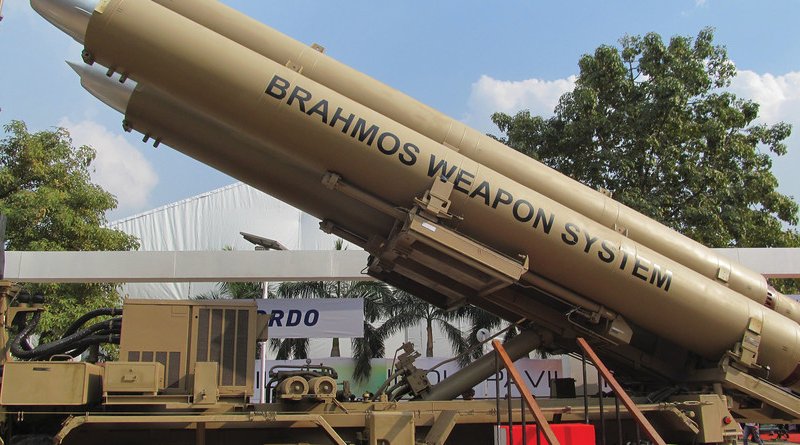A Close Call – OpEd
While the world is witnessing the Ukraine conflict and UN envoys from around the world condemn Russia’s actions, an accidental missile launch from India to Pakistan may also be a matter of global concern. The recent accidental launch of BrahMos into Pakistani territory by India is a new talk of the town in South Asia. BrahMos, one of the fastest supersonic cruise missiles in the world, has a history of accidents and incidents in India. Back in 2009, an early developmental variant of the BrahMos missile missed its target at the Pokhran Test Range by 7 kilometer (KM) due to the switching off of GPS satellites. In 2021 again, an extended-range variant of the missile fell off during a test fire shortly after launch due to an error in the propulsion system. A week ago, India fired a missile that crashed into Mian Channu, Pakistan. The missile was picked up by Pakistani Air Defence systems. As incident happened, Pakistan strongly condemned it and also cautioned India against recurrence of any such incident in the future. Later, India acknowledged that missile had mistakenly been fired into Pakistan and the action was deeply regrettable. It is to remember that BrahMos is a nuclear capable supersonic cruise missile. The irony is that missile followed the same trajectory that it would have in case of a conflict. India also waited for hours to confirm the accident.
In a nuclear environment, the mistrust between two neighbours has brought them to the verge of conflicts in the past. The mistrust runs deep between two subcontinental neighbours. Along with a number of wars and conflicts in past, both countries came close to climbing the escalation ladder three years ago in the aftermath of the Balakot airstrikes. This incident of cross border missile fire has once again brought the spotlight on those risks. It is also bound to raise concerns about the safety of India’s weapons systems. Though the missile was not armed with a nuclear warhead, it has raised the potential vulnerability of Indian nuclear arsenal. For years, India has been propagating its systems are safe with foolproof safety measures and procedures. The aforementioned incident, however, proved that India’s systems are either weak or compromised. Icing on the cake is that the DGMO-level hotline between two countries was not activated to inform it of the accidental firing of the missile and its trajectory. In case of such incidents, if one of them were to accidentally start a nuclear war, it is estimated that the resulting nuclear winter could kill 1 billion people worldwide. Hence, there is a need to inspect India’s systems and verify that the weakness and loopholes have been addressed to the satisfaction of all, especially Pakistan.
Ignoring the weapons possessed by other de-jure and de-facto nuclear weapon states, the world is already concerned about a war between India and Pakistan. Like the US and Russia, all other nuclear weapon states are upgrading their arsenals, which means new weapons and new ways for something in the system to go wrong. The risk of accidental nuclear war is only growing, and barring major initiatives for risk reduction. This accidental missile launch incident is a wake-up call for India with regard to the safety of a nuclear South Asia. India needs to coordinate with Pakistan to ensure that all key questions regarding the incident are reasonably addressed.
Moreover, as nuclear rivals, both Pakistan and India should ensure that communication channels between them are always open to avert the risk of such incidents in future. There is also a need to emphasize on bilateral dialogue, especially on Confidence Building Measures (CBMs) regarding redressal mechanism on accidents relating to missile testing. The two countries have already signed a pact on pre-notification of flight testing of ballistic missiles. However, there is no such understanding on cruise missiles. This incident calls for a separate agreement on pre-notification of cruise missile testing by the two countries. In any case, there is a need to develop better and more comprehensive protocols to prevent such incidents between India and Pakistan. Based on mismanagement and miscalculations, both countries can messed up in future. It is a fact that both countries are not same, they cannot forget their pasts and have the right to disagree on many issues but in order to avoid a nuclear disaster, they have to find a new solution.
*Gulshan Rafiq is Research Associate at Islamabad Policy Research Institute (IPRI). She can be reached at [email protected]

